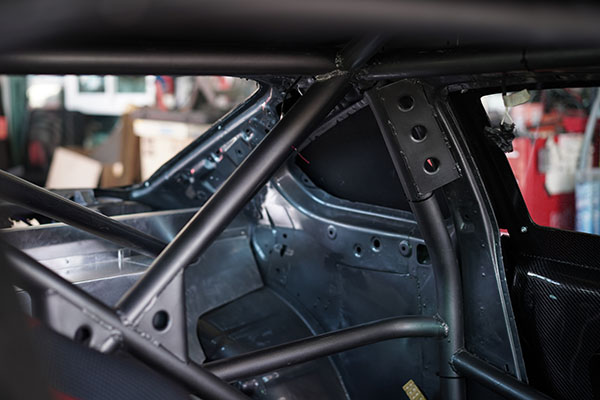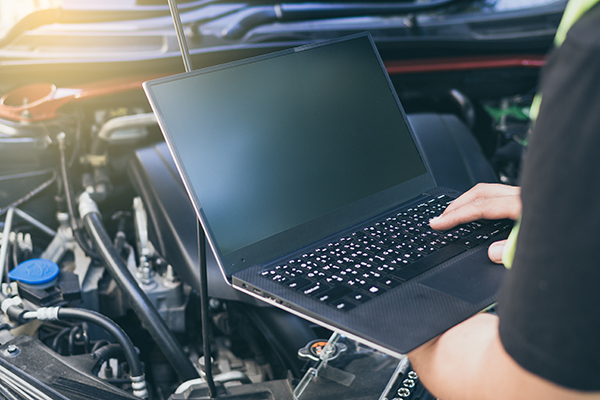Posted on 12/24/2023
.jpeg)
Turbochargers and superchargers, both hailed as champions in the world of forced induction, are very similar but, at the same time, completely different. How is that? We will take you on a journey to unravel the intricacies of these two engine-enhancing technologies and understand the key differences that set them apart. Turbochargers Turbochargers harness the energy from a vehicle's exhaust gasses to drive a turbine. This turbine, in turn, compresses the incoming air before it enters the engine. The compressed air allows for more fuel to be burned, resulting in increased power and efficiency. Pros: Fuel Efficiency: Turbochargers can improve fuel efficiency by allowing smaller engines to produce more power. Altitude Performance: Turbochargers perform well at higher altitudes, making them suitable for a variety of drivin ... read more
Posted on 11/28/2023
.jpeg)
Every car aficionado knows the thrill of revving up a HEMI engine. Its distinctive roar and unbridled power have captivated generations of automotive enthusiasts. But what exactly sets these engines apart from their conventional counterparts, and do they truly outperform regular engines? Buckle up and get ready to explore the thrilling world of HEMI engines! We're taking a journey to uncover the secrets behind these powerhouses, from their unique design to their impressive performance characteristics. Plus, we'll dive into the age-old debates surrounding their superiority over standard engines. What Makes a HEMI Engine Stand Out The term HEMI stands for Hemispherical Combustion Chamber, referring to the distinct hemispherical shape of the engine's combustion chamber. This design allows for optimal airflow and fuel combustion, leading to ... read more
Posted on 10/27/2023

Buckle up and prepare for a journey because today, we are going into the world of track-ready cars that promise to make your heart race on the circuit. We're about to dive into the details of four exceptional vehicles, each uniquely designed to deliver pulse-pounding performance on track days. Whether you're a seasoned racer or a newcomer to the track, these cars will elevate your driving experience to a new level. Porsche 911 GT3 The Porsche 911 GT3 is a legendary track performer known for its precision and dynamic handling. Beneath the iconic 911 silhouette lies a naturally aspirated flat-six engine that produces an exhilarating 502 horsepower. It boasts rear-wheel drive and a track-tuned suspension, offering exceptional ... read more
Posted on 9/29/2023

The engine roars, and your heart races in tandem. As you navigate each hairpin bend, you can't help but feel a rush of excitement. But amidst the adrenaline-fueled adventure, there's something you might not see – something that could be the difference between a thrilling drive and a life-altering accident. It's the hero of vehicle safety in off-road, rally, and performance-orientated vehicles - the roll cage. Roll Cages - More Than Meets the Eye At first glance, a roll cage might seem like an odd addition to a car. After all, it resembles a complex web of steel bars and tubes that crisscross the interior, creating an intricate, almost otherworldly structure. But don't let its appearance fool you; this unassuming framework serves a vital purpose, one that can make the difference between walking away unscathed and facing catastrophe in a crash. Safety Beyond the Obvious You might think - "Why would I need a roll cage? I ... read more
Posted on 8/30/2023

In the world of modern automobiles, acronyms like ECU (Engine Control Unit) are frequently mentioned but often misunderstood. The ECU plays a crucial role in the operation of your vehicle, influencing its performance, efficiency, and overall behavior - let's take a closer look at everything you need to know about ECUs! |What is an ECU? The Engine Control Unit, or ECU, is a vital electronic component found in virtually every modern vehicle. Also known as the Engine Control Module (ECM), the ECU is the brain behind your vehicle's engine operation. It constantly monitors various sensors throughout the engine and makes real-time adjustments to optimize performance, emissions, fuel efficiency, and more. |Different ... read more